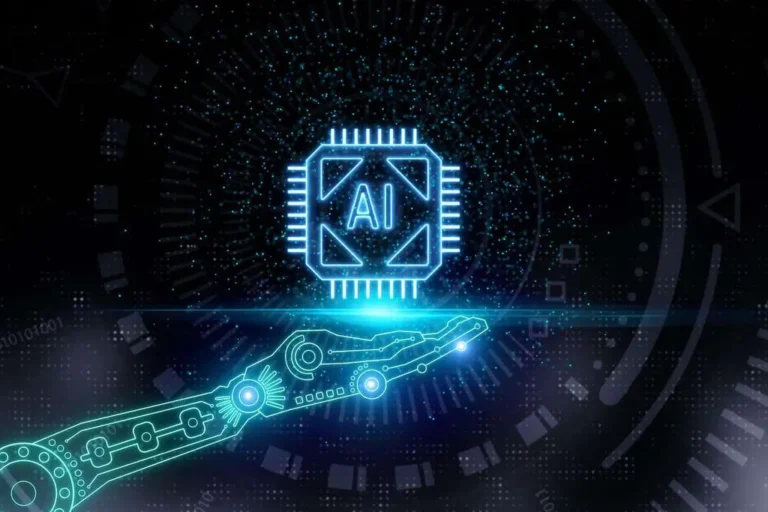Docker and Kubernetes are two foundational tools on the earth of containerization, each serving distinctive purposes. Docker simplifies container creation and deployment, making it best for smaller projects or less complicated environments. On the opposite hand, Kubernetes provides superior orchestration and management capabilities for large-scale, distributed applications. Organizations use Kubernetes to automate the deployment and administration of containerized functions. Somewhat than individually managing every container in a cluster, a DevOps group can as a substitute inform Kubernetes tips on how to allocate the necessary sources in advance.
In the production setting, these containers may be run on any server which helps a containerization platform. Thus, the code is separated from the underlying infrastructure and a big problem is solved by Containers. Hence, it is extremely advantageous for builders to use containers. Docker is an instance of one of the most famous containers in use at present in the tech world. The primary benefit that Kubernetes offers is with the power to handle a number of containerized functions unfold throughout a number of VMs. Even although it requires a extra concerned initial setup, it offers an array of highly effective options and functionalities.
This gives you perception into potential assault paths from external publicity to inner resource vulnerabilities. If you’re struggling to manage Kubernetes complexity, think about whether or not a managed answer might better meet your use case, particularly for smaller teams. Tenable Cloud Danger Report 2024 exhibits that 44 p.c of organizations run containers in privileged mode. That dramatically will increase the risk of privilege escalation, especially when attackers already have access to vulnerable APIs or service accounts. Even nonetheless, Kubernetes is the de facto standard for container orchestration. Techstrong Research surveyed their neighborhood of security, cloud, and DevOps readers and viewers to achieve insights into their views on scaling safety throughout cloud and on-premises environments.
Whether you need Docker or Kubernetes will rely upon should you require cloud-native options. You also need to consider the complexity of your application and the variety of workloads you propose to run on it. Docker is finest suited to creating simple and light-weight functions. Kubernetes is an excellent selection for heavy production environments and might manage multiple containers throughout a number of machines. If you’ll have the ability to handle your infrastructure and don’t need any Kubernetes-specific options https://www.globalcloudteam.com/, you need to use Docker Swarm.

How Kubernetes Works
It has a steep studying curve, that means newbies must invest vital time to learn it. To entry its superior options, you have to pay for added services. Kubernetes can be well-known for its growing complexity, but Docker loses to Kubernetes by means of customization and automation capabilities. This places it in a category of software program called container orchestration instruments. Think About a complex musical piece with multiple instruments (containers) playing collectively seamlessly. Kubernetes — also referred to as K8s — is the conductor, coordinating the deployment, scaling, and management of containerized purposes throughout a cluster of servers.
Kubernetes Vs Docker: Key Variations Explained
In this tutorial, we’ll dive into the core differences between Docker and Kubernetes, helping you select the best tool primarily based on your needs. We’ll additionally focus on how they can work collectively to enhance your growth and production workflows. Kubernetes is an open supply container orchestration platform for managing, automating, and scaling containerized applications. Kubernetes is the de facto normal for container orchestration due to its greater flexibility and capability to scale, although Docker Swarm is also an orchestration tool. Docker, in another approach, is a software program packing and supply platform.
These containers can then be simply shared and run on numerous machines, whatever the underlying infrastructure. When utilizing Kubernetes with Docker, Kubernetes acts as an orchestrator for the Docker containers. This means that what is kubernetes Kubernetes can manage and automate the deployment, scaling, and operation of Docker containers. After reading this comparability article, you should understand the basic distinction between Kubernetes and Docker. The article additionally highlighted how Kubernetes and Docker assist each other in the software growth process. Containers are isolated environments that means developers can arrange an app and ensure it runs as programmed regardless of its host and underlying hardware.
Connected nodes are known as a cluster.Hold this thought for a minute and visualize all these containers and nodes in your mind. It turns into instantly clear there must be a number of mechanisms in place to coordinate such a distributed system. These mechanisms are sometimes in comparability with a conductor directing an orchestra to carry out elaborate symphonies and juicy operas for our enjoyment. Belief me, orchestrating containers is more like herding cats than working with disciplined musicians (some declare it’s like herding Schrödinger’s cats). Here are a number of the duties orchestration platforms are challenged to perform. Kubernetes may help you scale up, down, schedule, and manage multiple containers.

Use Tenable One Connectors to seamlessly mix knowledge from third-party safety tools with Tenable’s native sensor data. In Linux, the expertise to create containers and containerised apps has existed for some time. In terms of ecosystem integration, Docker can work independently or with Docker Swarm. Kubernetes, then again, provides intensive integration choices with numerous cloud platforms, CI/CD pipelines, and monitoring systems. By understanding their strengths and weaknesses, you’ll be succesful of make knowledgeable decisions that finest fit your growth and operational objectives.
- Since containers are system-agnostic, Docker is a frequent alternative for growing distributed purposes.
- We’ve been doing issues like networking and log management for a very long time, however now there is a commonplace way to implement them.
- If you search for ‘node’ you’ll quickly find a picture that has been used greater than 1 billion occasions.
- Kubernetes addresses most of the scalability issues that Docker faces.
- When a Docker image is launched utilizing the docker run command, it turns into a Docker container.
Kubernetes provides a extra complete and versatile storage system. It helps simple volumes like Docker, but also introduces the idea of Persistent Volumes (PVs) and Persistent Volume Claims (PVCs). These allow for a extra controlled and environment friendly handling of storage resources, especially in a multi-tenant setting. In the world of container orchestration, both Kubernetes and Docker have their distinctive strengths and best use circumstances. Understanding these may help you select the right platform on your particular wants. If you’re new to the world of containers, there are two words you would natural language processing have definitely come across but may not but understand the distinction between… Kubernetes and Docker.
Our world-class AI-powered cloud-native platform provides you with one of the best of both worlds concerning Kubernetes and Docker safety. It uses endpoints from two deployed containers (so-called pods in Kubernetes). You don’t even want NodeJS or anything else to build and run this container. Every Thing is encapsulated, and as a end result of nature of Docker, it runs with native efficiency. In short, Docker is a platform to run immutable containers encapsulated with near native efficiency on a desired machine.

